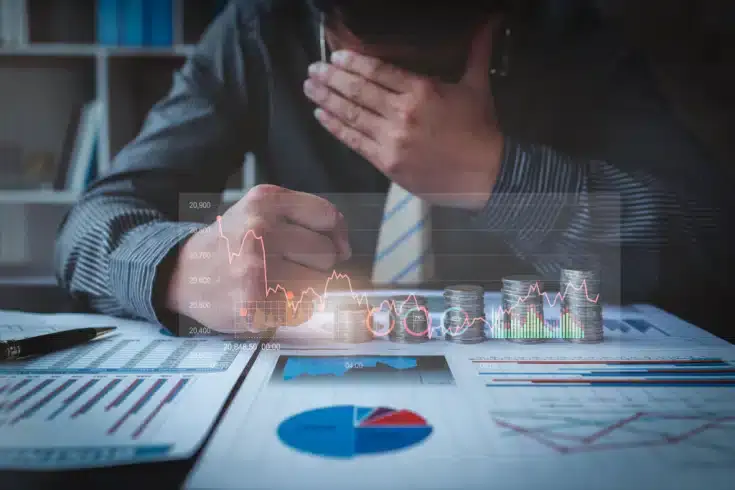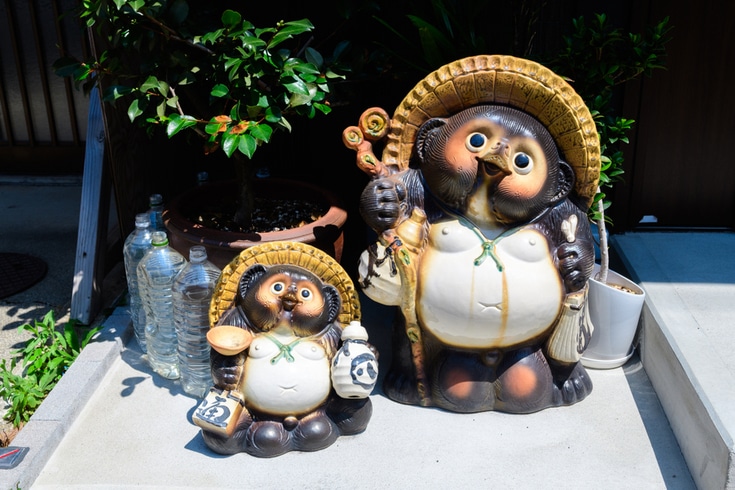Understanding Reputational Damage: Clear Explanation of Response Strategies When Affected

In recent years, the proliferation of social media platforms has led to increased exposure to the term “reputational damage.” However, I believe that many people may not have a tangible understanding of the actual impact that reputational damage can have.
Here, we will provide a detailed explanation of reputational damage, focusing primarily on online instances, including its effects and strategies for countermeasures, categorized by different sites.
What is Reputational Damage?
Reputational damage, when understood in its dictionary sense, refers to harm caused by baseless rumors (according to “Daijisen”). This is particularly relevant in cases of economic and social damage.
In the current context, reputational damage is not only associated with unfounded rumors but also includes economic harm stemming from factual events. Incidents or accidents that occur, followed by media coverage and online word-of-mouth, can lead to negative impacts such as a decrease in sales of products or services, which is becoming a significant issue.
Types of Reputational Damage
There are several types of information that can cause reputational damage. For instance, there are rumors spread by individuals on social media and internet forums, as well as reports broadcasted by mass media. Here, we will explain the three main categories.
Online Reputational Damage
Online reputational damage is often most prevalent on social media and internet forums. Unfounded comments that lower the rating of a company or store as so-called word-of-mouth, or internet articles that defame a company and appear in search results, can catch the eyes of many.
Not only organizations such as companies and stores but also individuals such as celebrities and influencers can frequently become victims of reputational harm due to malicious posts.
Here, we will explain about various social media platforms and forums.
X (Formerly Twitter)
X, widely used by many, is a social networking service that allows for real-time communication through short messages of 140 personalitys (with paid accounts enabling longer posts). It is utilized by a diverse range of individuals and organizations, including celebrities, businesses, and restaurants, all of whom maintain accounts.
One reason why reputational damage originating from X (formerly Twitter) can become severe is the ease of posting and the high potential for widespread dissemination. For example, ‘reposting’ (retweeting) someone else’s post can be done with just the click of a button. Additionally, the search function makes it easy to research various types of information.
Related article: When can posts on Twitter regarding arrest records be deleted? Explaining a notable Supreme Court precedent[ja]
Instagram is a social networking service where users post photos and videos, and like X, it is used by many people. A distinctive feature of Instagram is the “Story” function, which makes posts disappear after 24 hours, and the ease of posting without the need to compose text. There is a risk that content shared via Stories could be reproduced without permission and remain on the internet even after 24 hours, potentially leading to reputational damage.
Related article: Explaining Corporate Account Flame Wars on Instagram! Prevention and Response Measures Included[ja]
Facebook is a social networking service that primarily requires users to register with their real names. It allows individuals to share updates with friends and acquaintances, and is not only used for personal pages but also for business pages to promote companies. However, the prevalence of impersonation accounts and negative posts directed at individuals and companies is not uncommon. Furthermore, due to the large number of users, the reputational damage that can result from such activities is significant.
Related Article: Methods for Deleting Malicious Articles and Accounts on Facebook and Legal Responsibilities[ja]
YouTube
YouTube stands as the quintessential video-sharing platform, where numerous individuals establish channels to post a diverse array of content, including artists’ music videos (MVs), gaming commentaries, and routine videos. Additionally, it enables live streaming, allowing creators and viewers to connect in real-time through chat and other interactive features.
Related article: About the crime of defamation for slander and libel on YouTube against individuals or corporations[ja]
TikTok
TikTok is a social networking service specialized in videos and has gained popularity primarily among younger generations. TikTok provides video templates and short music clips, allowing users to post shorter videos more easily than on YouTube. However, TikTok has a save feature and allows for effortless sharing on other social networks, which means that content could be reposted on unintended sites without the creator’s consent.
Related article: What are the hidden dangers of TikTok? Introducing how to deal with defamation[ja]
5channel (formerly 2channel)
5channel is an anonymous bulletin board site. While it is a convenient platform for anonymous discussions, it has unfortunately become a hotbed for slander, leading to an increase in cases where personal information such as names, addresses, phone numbers, and places of employment is exposed.
Related article: How to Search for Personal Information Posted on 2channel and 5channel and How to Deal with It[ja]
For the differences between 2channel and 5channel, please refer to the article below.
Related article: What is the Difference Between ‘2channel’ and ‘5channel’? Explaining the Current Situation (2024 Latest Edition)[ja]
Clubhouse
Clubhouse is an invitation-only audio social networking app. With the spread of the coronavirus making it difficult to meet and chat in person, this app has become popular for enjoying conversations from the comfort of home, leading to a surge in users at one point. One of the charms of Clubhouse is the development of ephemeral conversations, as recording or taking notes is prohibited according to its terms of service.
However, due to its nature, there is a risk of edgy remarks that could be considered slanderous.
Related article: Methods for Identifying Perpetrators and Collecting Evidence of Slander on Clubhouse[ja]
Note
The media platform “Note,” operated by Note Corporation, is a service that allows users to easily share their own experiences and know-how. On “Note,” users can post text, images, videos, audio, and tweets.
However, while monetization through paid content is possible, the current situation is such that many people make malicious posts in an attempt to differentiate themselves, partly because the platform allows anonymous posting.
Related article: How to Identify the Poster of a Defamatory Article on Note[ja]
Tabelog
Tabelog is Japan’s premier gourmet website, designed with the concept of “choosing the right restaurant without fail.” With over 46 million total reviews as of March 2022, it is undoubtedly a large-scale site.
Reviews are evaluated based on five criteria: “food and taste,” “service,” “atmosphere,” “cost performance (CP),” and “alcohol and drinks.” Reviewers are encouraged to write their comments in a way that is helpful to others.
On Tabelog, both positive and negative comments about restaurants are permitted. Consequently, this also means there is a higher likelihood of slanderous comments occurring.
Related article: Methods to Identify Reviewers on Tabelog and the Average Cost of Legal Fees[ja]
Exaggerated Reporting by the Mass Media
Reputational damage can also stem from information disseminated by influential mass media outlets. There are patterns to this exaggerated reporting, which can either involve speculative articles written about incidents or accidents with a biased slant, or, while not incorrect, information that is misinterpreted by users due to the media’s presentation. Misunderstandings by users can amplify the reputational damage caused by such reports.
Rumors Spreading from Person to Person
One example of reputational harm that can occur close to home is the spread of rumors by individuals. For instance, baseless rumors such as a local factory or company going bankrupt can proliferate within a community.
The Impact of Reputational Damage
So, what exactly are the impacts of reputational damage? We will explain them, distinguishing between the effects on individuals and those on corporations.
Effects on Individuals
For individuals, the impact can be both psychological and financial, with either having the potential to disrupt daily life depending on the severity.
Specific financial impacts include disadvantages in job hunting or receiving unfavorable treatment at work. Within the workplace, this could lead to a decrease in internal evaluation, and consequently, the possibility of dismissal or demotion cannot be dismissed.
Effects on Corporations
The impacts on corporations are varied, but notably include the deterioration of corporate and brand image, as well as the loss of customers and business partners. Additionally, the internal effects of reputational damage, such as the increased burden of dealing with harassment, could lead to a decrease in employee motivation.
Since these issues are related to management, it can be said that reputational damage poses a threat to corporations.
Examples of Reputational Damage
Below, we will explain actual cases where companies suffered reputational damage.
‘Part-time Terror’ Caused by Social Media Posts
In recent years, incidents caused by part-time employees, known as ‘part-time terror,’ have increasingly become a social issue. The content of these posts often involves frivolous pranks, such as eating food meant for customers or climbing into refrigerators used to store products. With the widespread use of social media, even anonymously posted videos can lead to the identification of the poster or the part-time staff, and the store involved is not uncommon.
Such ‘part-time terror’ can force a store to close or, in the case of franchises, lead to a decrease in patronage across affiliated stores, resulting in significant damage. Companies are responding more strictly, including seeking damages from employees who engage in such behavior.
Related article: What measures can be taken against ‘part-time terror’ on SNS? Is it possible to dismiss or claim damages?[ja]
Reputational Damage Caused by Mere Rumors
The above example was based on factual reputational damage, but there are also cases of damage caused by mere rumors. One such case stemmed from a road rage incident that resulted in the deaths of two people and became a hot topic on the internet due to the malicious nature of the driving.
Due to the high level of attention, many people began sharing the driver’s personal information, such as residence and workplace, on social media. During this, an unrelated construction company, which shared the same surname and industry as the accused, was mistakenly spread as the ‘company run by the driver’s father, where the driver was also employed.’
Believing this rumor, the company received a barrage of harassing phone calls, causing enough disruption to force a temporary closure for safety considerations. The company sued five individuals who posted the false information, resulting in a court-ordered compensation of 2.31 million yen.
Measures to Take When Affected by Reputational Damage
Let’s discuss the methods and strategies for dealing with reputational damage when it actually occurs. The measures to resolve reputational damage are all interconnected, and implementing them in a one-stop manner can be effective and efficient.
Monitoring Information
As a preventative measure, it is crucial to be aware of the information that is circulating regularly. By conducting periodic internet monitoring, you can develop better strategies to combat reputational damage.
Establishing Guidelines
As a post-incident measure, it is advisable to have guidelines in place that dictate the actions to be taken after reputational damage has occurred. Having these guidelines prepared in advance can help minimize damage without panic in the event of an incident.
Remedies for Listing Pollution
Listing pollution refers to the situation where, when searching for your company name or product name on search engines like Google, advertisements for competitors or their products appear, leading internet users who were interested in your company to competitors, resulting in a disadvantage to your business.
Combining IT technology to identify the players involved in the advertisement placements with legal requests for removal based on trademark infringement can be a strategy to counteract listing pollution.
For more details, please refer to the following article.
Related article: Remedies for Listing Pollution[ja]
Publishing Statements on Baseless Information
As a corporate standpoint, publishing statements that refute false reports or baseless information in the media is also one way to mitigate damage. When doing so, ensure that the statement is not perceived as a hoax by publishing it on the company’s official account with a verified mark or prominently on the homepage.
Consulting with a Lawyer
Of course, it is also possible to consult with a lawyer to consider legal action. A lawyer can explore various responses, such as requesting the removal of posts on the internet or disclosure of the poster’s information. Depending on the extent of the damage, you may also consider filing for damages or suing for defamation and slander. If you wish to explore these options, consult with a lawyer.
Related article: Is it possible for a corporation to claim damages? Explaining based on defamation precedents[ja]
Related article: Cases where online defamation constitutes a crime of trust damage or business interference[ja]
As mentioned above, countermeasures against reputational damage require an analysis of the damage situation and legal strategies, necessitating expertise in both areas. Furthermore, being well-versed in the personalityistics of social media and bulletin boards and the potential for negative impacts is also crucial in the internet society.
Summary: Consult a Lawyer Promptly if You Suffer from Reputational Damage
We have explained the issue of reputational damage. Such damage can be significant, affecting both corporations and individuals alike. To minimize harm and prevent the spread of false information, it is crucial to take proper measures.
In the event that you do suffer damage, it is vital to act quickly and calmly. This is especially true when legal action is required, as early evidence preservation is critical. We highly recommend consulting with a lawyer promptly.
Guidance on Measures by Our Firm
Monolith Law Office is a legal practice with extensive experience in IT, particularly in both the internet and legal fields. In recent years, overlooking information related to reputational damage and defamation spread online can lead to serious consequences. Our firm provides solutions for managing reputational risks and handling online crises. Details are provided in the article below.
Areas of practice at Monolith Law Office: Reputational Risk Management for Listed Companies, etc.[ja]
Category: Internet





















